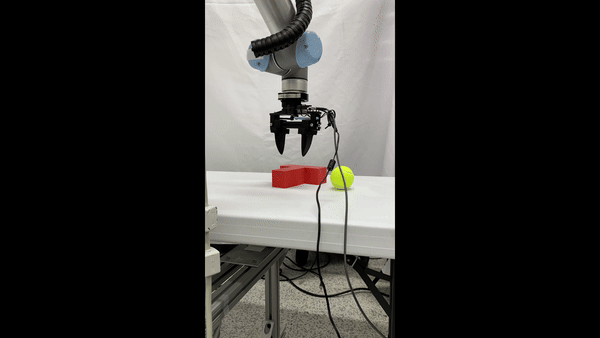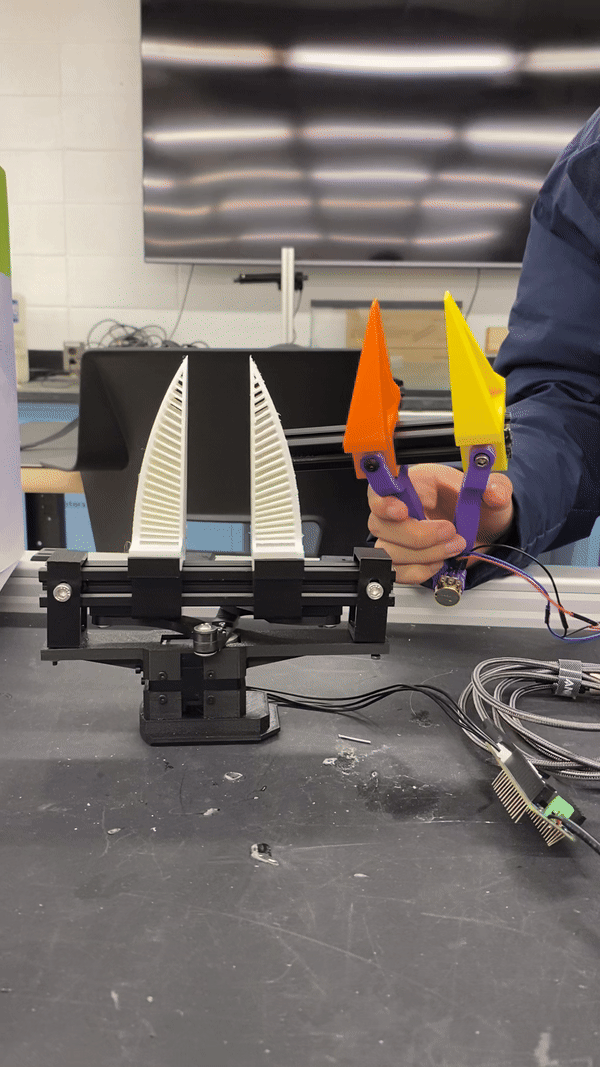Teleoperated Parallel Gripper
Project Description
The teleoperated parallel gripper is a modular gripper designed and built for the Columbia Robotic Manipulation and Mobility (ROAM) lab under Prof. Matei Ciocarlie. The gripper was developed for part of a larger project to build a bimanual teleoperation station, inspired by the ALOHA project. Currently, the grippers are mounted onto a UR5 and Sawyer arm. The station is used to collect teleoperated data to train a neural network diffusion model for autonomous dextrous manipulation.


Methods
-
Designed and built a modular parallel gripper and a teleoperator controller
-
Created a 4-bar sliding linkage to convert the rotational motion of the Dynamixel servo to the linear motion of the grippers
-
Conducted kinematic and static force analysis on the linkage system
-
Optimized the linkage via stochastic gradient descent to minimize torque requirements on servo
-
Designed a custom TPU-printed detachable fins with geometry that allows for compliant gripping on rigid objects; increased finger contact surface area and friction for more effective grasping
-
Designed an ergonomic and intuitive teleoperator controller to operate the gripper
-
Used a 1-turn potentiometer embedded at the base pivot of the controller to map the motion of the controller to the gripper
-
Created and implemented a communication protocol via serial communication between the controller and gripper over Arduino boards following the publisher-subcriber model
Media
Parallel Gripper

Teleoperator Controller

CAD Model

Kinematic Analysis
